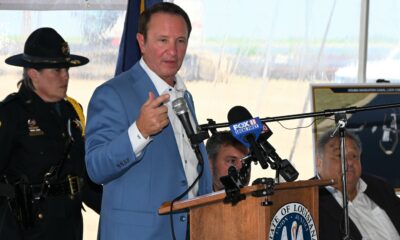Human Interest
Autism: looking in the wrong places

Just last week, on March 24, 2014, the U.S. Centers for Disease Control and Prevention in Atlanta (CDC) released its latest data on autism. After surveying medical and school records from 11 states, the CDC found that autism has more than doubled since the new century began only 14 years ago. Today the condition affects one out of 68 children – five times as many boys as girls. Alarmingly, there was a 30 percent climb in its incidence between 2008 and 2010.
Maybe you missed the story, since the day it broke, and the following day, the media –TV, radio, print – devoted about 30 seconds and just a few articles to this horrific report, significantly less time than is still spent endlessly speculating on Flight 370 or debating the use of the word “bossy,” both of which pale in comparison to the marathon of unendurable daily ads for Cialis (tadalafil/Eli Lilly) and Viagra (sildenafil/Pfizer)! Exhibit Number One in America’s priority system!
The powers-that-be at the CDC once again trotted out the age-old rationales to explain this bizarre finding:
- Greater awareness and therefore earlier and more accurate diagnoses
- The role that being an older parent plays not only in the incidence of autism but also Down syndrome and other developmental disabilities
- Genes
- “Something” in the environment
The study found that the incidence of autism in blacks “continues to lag behind whites and Hispanics,” which some experts attributed to racial bias (i.e., blacks lack equal access to medical care), but other experts said that blacks may simply be less vulnerable to autism for some unknown reason.
What is consistently omitted, however, is the role that ultrasound exams during pregnancy may and probably do play not only in this seeming black/white disparity, but in the rapidly escalating incidence of the condition. More about that below.
Autism: what we know today
Autism is a neurological disorder that affects the normal development of the brain, causing self-defeating behaviors and an inability to form social relationships. It usually appears before the age of three. Most scientists believe that autism is strongly influenced by genetics but allow that environmental factors may also play a role.
To be diagnosed on the autistic spectrum, a child must have deficits in three areas:
- Communication (most children can’t make eye contact; others can’t speak)
- Social skills (typified by disinterest in both people and surroundings)
- Typically “normal” behavior (many autistic children have tics, repetitive behavior, inappropriate affects, et al)
Those diagnosed on the autistic spectrum range from high-functioning, self-sufficient people, even geniuses, to those who need lifelong supportive help.
Newsday reporter Delthia Ricks interviewed Coleen Boyle, the Director of the National Center on Birth Defects and Developmental Disabilities (a division of the CDC), who said that “8-year-olds [were chosen for the study] because, by that age, everyone with an autism-spectrum disorder usually will have been diagnosed.”
According to NY Times writer Benedict Carey, the study revealed “a huge range in autism prevalence… from one child in 175 found with autism in Alabama, to one in 46 in New Jersey.”
Other sites in the study, Carey reported, were in Arizona, Arkansas, Colorado, Georgia, Maryland, Missouri, North Carolina, Utah and Wisconsin.
After the CDC announced the horrifying results of its study, several members of Congress and advocacy groups called for more funding for research and support services.
A largely debunked theory
The increased incidence of autism has been attributed by legions of parents and a number of professionals to the mercury-containing preservative thimerosal, used to prevent bacterial or fungal contamination in the vaccines babies and children routinely receive.
This is not backed up by hard science.
Thimerosal, which has been used in vaccines since the 1930s, has not been used in the U.S. since 2001 and the vaccine dosages containing the preservative that were given before then had about the same amount of mercury found in an infant’s daily supply of breast milk.
Numerous studies – by the Centers for Disease Control, the Institute of Medicine, American Academy of Pediatrics, the World Health Organization, and the National Academy of Sciences, among others – have found no autism-vaccine link, while other studies have shown an increase in autism in countries that have removed thimerosal from vaccines.
Nevertheless, aided by salivating personal-injury lawyers, parents have filed thousands of lawsuits claiming that thimerosal “caused” their children’s autism. Between late 1999 and late 2002, mercury was removed from most childhood vaccines, including DPT (Diphtheria, Tetanus, Pertussis), Hepatitis B, and Hib [Haemophilus influenza b]. The MMR (Measles, Mumps, Rubella), which is a live vaccine, is not compatible with thimerosal.
Also abetting the quack science are figures like Robert F. Kennedy, Jr., who wrote an article, “Deadly Immunity,” for Rolling Stone magazine, which was reprinted in Salon.com. But Salon ended up removing the article from its website because of the scorn it received from the scientific community. Kennedy’s articles were “rife with factual errors and distortions,” wrote Robert V. Fineberg, M.D, president of the Institute of Medicine of the National Academies.
What appears significant, however, is the degree to which diagnoses of mental retardation and learning disabilities throughout the country have decreased at the same time as diagnoses of autism have risen, as reported in a May 2006 issue of Behavioral Pediatrics. Some experts theorize that “diagnostic substitution” may explain this phenomenon. Diagnostic Substitution means that children who were diagnosed with other conditions – including ADHD and learning disabilities – are now diagnosed with autism.
Autism: my theory
In the early ‘70s, I worked as a delivery-room nurse at a university-affiliated hospital near my home on Long Island. It was a revolutionary time in obstetrics, when the Lamaze method of “prepared childbirth” and the use of sonograms to visualize fetuses were gaining popularity.
Actually, ultrasound technology was first developed in Scotland in the mid-1950s by obstetrician Ian Donald and engineer Tom Brown to detect industrial flaws in ships. By the end of the ‘50s, ultrasound was routinely used in Glasgow hospitals, but it was well into the 1970s before it was used in American hospitals to check that the developing baby, placenta, and amniotic fluid were normal and to detect abnormal conditions such as birth defects and ectopic pregnancies, et al.
At the end of the ‘70s, I became a certified Lamaze teacher and spent the next 22 years giving classes in my home. In a very real way, I had my own laboratory, as I learned directly from my clients about the increasing escalation of sonogram exams they had as the decades elapsed.
In the early 1980s, it was common for only one or two out of the 10 women in my classes to have a sonogram. In just a few years, every woman in my classes had had a sonogram. And in the late ‘80s and ‘90s, almost every woman had not one sonogram, but often two or three or four or five – starting as early as three or four weeks gestation and extending, in some instances, right up to delivery!
It was in the ‘90s, in fact, that it began to occur to me that the scary rise in the incidence of autism might be linked to the significant rise in ultrasound exams. Over the years, I’ve posited my theory to a number of people, written letters to the editors of newspapers – including the NY Times, for which I wrote for over 20 years, but they still refused to publish my letter – and e-mailed my idea to one of the top news people at the Fox News Network, but the we report/you decide powers-that-be on that station strangely decided not to report on this subject.
I contacted autism researchers Dr. Marcel Just and Dr. Diane L. Williams, who told me via e-mail that Dr. Pasko Rakic at Yale was, indeed, exploring the autism-ultrasound link.
Then, in 2006, I found an article in Midwifery Today, “Questions about Prenatal Ultrasound and the Alarming Increase in Autism,” by writer-researcher Caroline Rodgers.
“The steep increase in autism,” Rodgers wrote, “goes beyond the U.S.: It is a “global phenomenon”… that “has emerged…across vastly different environments and cultures.”
“What do countries and regions with climates, diets and exposure to known toxins as disparate as the U.S., Japan, Scandinavia, Australia, India and the UK have in common?” Rodgers asked.
“No common factor in the water, air, local pesticides, diet or even building materials and clothing can explain the emergence and relentless increase in this serious, life-long neurodevelopmental disorder,” she stated.
However, Rodgers added: “What all industrial countries do have in common is …the use of routine prenatal ultrasound on pregnant women. In countries with nationalized healthcare, where virtually all pregnant women are exposed to ultrasound, the autism rates are even higher than in the U.S., where due to disparities in income and health insurance, some 30 percent of pregnant women do not yet undergo ultrasound scanning.” Aha! Could this be why blacks and Hispanics in America continue to lag behind whites in the development of autism?
Even in remote, rural regions of developing countries like China, ultrasound is in common use because sex determination is so important to their one-child – preferably male – policy.
The cause of autism, Rodgers continues, “has been pinned on everything from `emotionally remote’ mothers…to vaccines, genetics, immunological disorders, environmental toxins and maternal infections – a far simpler possibility…is the pervasive use of prenatal ultrasound, which can cause potentially dangerous thermal effects.
Enter hard science
In August 2006, Pasko Rakic, M.D., chair of Yale School of Medicine’s Department of Neurobiology, announced the results of a study in which pregnant mice underwent various durations of ultrasound. The brains of the offspring showed damage consistent with that found in the brains of people with autism.
The research, funded by the National Institute of Neurological Disorders and Stroke, also implicated ultrasound in neurodevelopmental problems in children, such as dyslexia, epilepsy, mental retardation and schizophrenia, and showed that damage to brain cells increased with longer exposures.
Dr. Rakic’s study, Rodgers said, “… is just one of many animal experiments and human studies conducted over the years indicating that prenatal ultrasound can be harmful to babies.”
In thedailybeast.com, Jennifer Margulis, author of Business of Baby: What Doctors Don’t Tell You, What Corporations Try to Sell You, and How to Put Your Baby Before Their Bottom Line, writes that Dr. Rakic “concluded that all nonmedical use of ultrasound on pregnant women should be avoided.”
In her research, Margulis said, she discovered that “there is mounting evidence that overexposure to sound waves – or perhaps exposure to sound waves at a critical time during fetal development – is to blame for the astronomic rise in neurological disorders among America’s children.”
Problems with sound and heat
A 2009 article in Scientific American by John Slocum explains that sonar (Sound Navigation And Ranging) systems, which were first developed by the U.S. Navy to detect enemy submarines, “generate slow-rolling sound waves topping out at around 235 decibels; the world’s loudest rock bands top out at only 130. These sound waves can travel for hundreds of miles under water, and can retain an intensity of 140 decibels as far as 300 miles from their source.”
This is relevant because many mass deaths and strandings of whales and dolphins have been attributed to the sonar waves emitted from Navy ships. Slocum writes that a successful 2003 lawsuit against the Navy brought by the nonprofit Natural Resources Defense Council (NRDC) to restrict the use of low-frequency sonar in waters rich in marine wildlife was upheld by two lower courts, but the Supreme Court “ruled that the Navy should be allowed to continue the use of some mid-frequency sonar testing for the sake of national security. “
There are hundreds if not thousands of cases that point to the dangers of sound waves. As many as 3,000 dead dolphins were found in Peru during the summer of 2012. Researchers at the Organisation for the Conservation of Aquatic Animals (ORCA), a Peruvian marine animal conservation organisation, attributed the mass deaths to the use of deep water sonar by ships in nearby waters. In June of 2008, four days after a Navy helicopter was using controversial sonar equipment during training exercises off the Cornish coast in Great Britain, 26 dolphins died in a mass stranding.
Two quick questions: If sonar beams can kill fully developed dolphins, what effect, then, do they have on the developing brains of in-utero embryos and fetuses? And why is this never discussed or debated or mentioned on TV broadcasts like the ones last week that reported the CDC’s latest and quite disastrous findings?
Getting back to those embryos and fetuses, Rodgers explains that an ultrasound used in fetal imaging emits short pulses of high-frequency sound waves that reflect off the tissues of the fetus, and the return echoes are converted into images. In addition to vibration, ultrasound waves can cause heating of the tissue and bone.”
“When the transducer from the ultrasound is positioned over the part of the fetus the operator is trying to visualize,” she continues, “the fetus may be feeling vibrations, heat or both.”
Rodgers then cites a warning the Food and Drug Administration issued in 2004: “…even at low levels, [ultrasound] laboratory studies have shown it can have…”jarring vibrations” – one study compared the noise to a subway coming into a station – “and a rise in temperature.”
Imagine how these assaults affect the developing brain of a fetus!
Just as concerning, as far back 1982, the World Health Organization’s (WHO) study, “Effects of Ultrasound on Biological Systems,” concluded that “…neurological, behavioral, developmental, immunological, hematological changes and reduced fetal weight can result from exposure to ultrasound.” Two years later, the National Institutes of Health (NIH) reported that when birth defects occurred, the acoustic output [of sonograms] was usually high enough to cause considerable heat.
And yet, in 1993, the FDA approved an eight-fold increase in the potential acoustical output of ultrasound equipment! Ostensibly, this increase was done to enhance better visualization of the heart and small vessels during microsurgery. Clearly, the health and well-being of developing fetuses was not a consideration!
“Can the fact that this increase in potential thermal effects happened during the same period of time the incidence of autism increased nearly 60-fold be merely coincidental?” Rodgers asks.
Pregnant women are always warned to avoid steam rooms and saunas, based on studies published in numerous prestigious journals in which an irrefutable relationship between elevated maternal temperature and the development of brain defects in their infants has been established.
Again, Rodgers asks the question every woman must be asking herself after hearing of the disastrous results of the new CDC study:
“Using common sense, why would anyone think that intruding upon the continuous, seamless development of the fetus, which has for millions of years completed its work without assistance, be without consequences?”
Keeping the heat on (so to speak)
In October of 2010, Ms. Rodgers participated in a forum sponsored by the Interagency Autism Coordinating Committee of the U.S. Department of Health and Human Services. In PDF format, she presented a lecture about autism and ultrasound entitled “The Elephant in the Room,” which included the following information:
- Worldwide autism boom identified by the Environmental Protection Agency (EPA) began with children born only 22 years ago in 1988-1989.
- Since the FDA approved an allowable eightfold increase in acoustic output in the early ‘90s, only one prospective study has been undertaken. The study design did not expose fetuses to the first-trimester scans that are common today.
- Ultrasound use and autism are more prevalent among higher socioeconomic groups.
- Several studies have shown increased prevalence of autism among better-educated, more affluent communities. Women in these communities undoubtedly have health insurance and other resources to allow access to good nutrition, prenatal vitamins and excellent prenatal care, which, according to current practice, includes more ultrasound.
Autism surveys and studies have found the following groups of women are at higher risk of bearing children with autism:
- Mothers who receive first-trimester care
- Mothers with higher educations
- Mothers with private health insurance
- Older mothers
Rodgers concludes: Only increased exposure to prenatal ultrasound can explain all of the above.
Rodgers also elaborates on how things have changed since the FDA approved an eight-fold increase in the potential acoustical output of ultrasounds in 1993.
- The number of ultrasound scans conducted during each pregnancy has increased, with women often receiving two or more scans even in low-risk situations
- The development of the vaginal probe, which positions the beam of sound much closer to the embryo or fetus, may put it at higher risk
- The use of Doppler ultrasound, which is used to study blood flow or to monitor the baby’s heartbeat, has increased. According to the 2006 Cochrane Database of Systematic Reviews, “routine Doppler ultrasound in pregnancy does not have health benefits for women or babies and may do some harm.”
Currently, the Centers for Disease Control and Prevention (CDC) are researching this issue in their Study to Explore Early Development (SEED).
There is a vast human tragedy – a true man-made disaster – taking place before our eyes.
For whatever reasons – follow the money? – the mountain of evidence that points to a causal relationship between prenatal ultrasound exams and an escalating pandemic of autism is being systematically ignored.
Could it have anything to do with the huge investments doctors and scientists have made in ultrasound technology, which, according to Jennifer Margulis, “adds more than $1 billion to the cost of caring for pregnant women in America each year”?
Could it have anything to do with the revenue now pouring like an avalanche into the coffers of diagnostic and treatment centers and classrooms?
Could it have anything to do with modern journalism’s almost complete abandonment of hard-nosed reporting and life-saving exposés?
As Caroline Rodgers said, there is an elephant in the room when it comes to the subject of autism – and that elephant is the worldwide blitzkrieg of ultrasound exams on pregnant women, exams that have bombarded the babies they’re carrying with the brain-warping sound waves and heat that will affect them every second of their autistic lives.
[subscribe2]
Joan Swirsky is a New York-based journalist and author. Her website is www.joanswirsky.com and she can be reached at joanswirsky@gmail.com.
-

 Civilization4 days ago
Civilization4 days agoKamala Harris campaign dying
-

 Civilization2 days ago
Civilization2 days agoI’m Voting Republican to Protect My Liberal Values
-

 Civilization4 days ago
Civilization4 days agoCBS Refusal To Release 60 Minutes Harris Transcript Indefensible
-

 Civilization4 days ago
Civilization4 days agoLeftists losing their constituencies
-

 Civilization3 days ago
Civilization3 days agoBiden calls for Trump to go to prison
-

 Civilization5 days ago
Civilization5 days agoLa. Gov. Landry Recognizes Natural Gas as “Affordable, Reliable, and Clean”
-

 Civilization1 day ago
Civilization1 day agoLos Angeles Times – Meltdown!
-

 Civilization3 days ago
Civilization3 days agoA Survivor’s Reflection on Oct. 7 and the Ongoing Fight Against Hamas
















[…] Autism: looking in the wrong places […]
“sonar (Sound Navigation And Ranging) systems, which were first developed by the U.S. Navy to detect enemy submarines”
Actually I think you’ll find that all the US Navy developed was the name “sonar”. Before that it was called ASDIC, it was first deployed on HMS Antrim (definitely not a US Navy ship) in 1920, and the UK gave the USA the technology in 1941 because your own attempts weren’t going too well.
Anyway your hypothesis is quite interesting. I wouldn’t draw any conclusions based on the effects of sonar because the wave form and magnitude are very different, but as ultrasound can be weaponised it certainly doesn’t seem a good idea to repeatedly point it at babies.
[…] Autism: looking in the wrong places […]
[…] There has been a lot of confusion and even some controversy surrounding the use of ultrasound technology and even more so the use of the pulse Doppler function when serving women seriously considering abortion. The claims of the impact of ultrasound imaging on the development of the baby range from no impact to severe negative impact including autism. […]
[…] Autism: looking in the wrong places […]